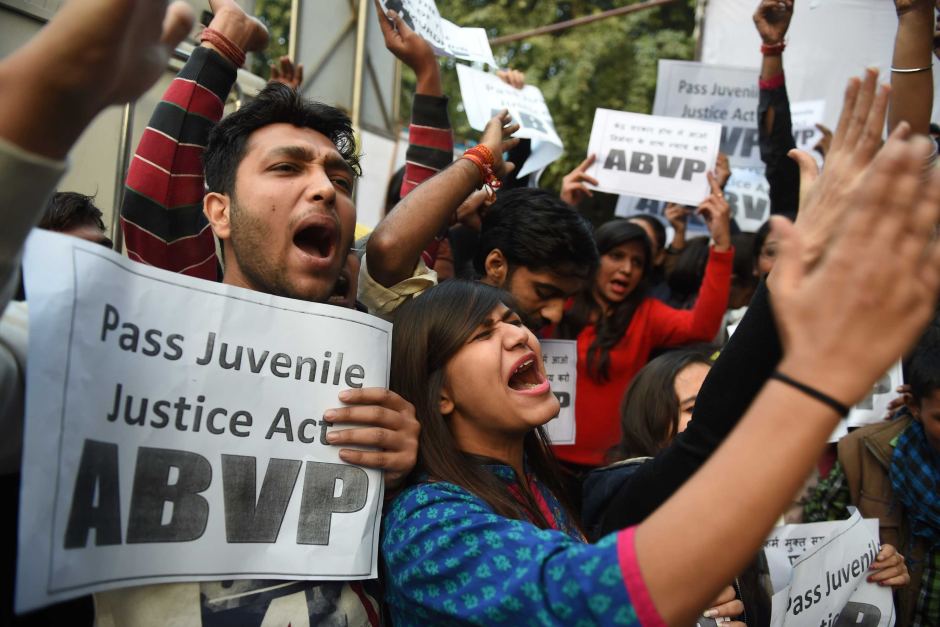Parliament passes bill to reduce Juvenile age to 16 years
In New Delhi, the Rajya Sabha passed the long-awaited Juvenile Justice Bill that proposes to try an accused who is above 16 years of age as an adult in the court of law.
Under India’s traditional juvenile justice laws, a minor’s maximum punishment was three years at a reform facility, according to Indian lawyers. The Juvenile Justice (Care and Protection of Children) Bill, which provides for lowering the age for trial from 18 years, was passed by Rajya Sabha with a voice vote. Indias Women and Child Development Minister, Maneka Gandhi said the legislation aimed to strike a balance between the rights of a child and the need to deter heinous juvenile crimes, especially against women.
Members of the Rajya Sabha today gave their unequivocal assent to the passing of the Juvenile Justice (Care and Protection of Children) Bill, 2014.
Under the new law if a juvenile who commits a crime is arrested after turning 21 then he/she stands can be treated as an adult and will face the same criminal proceedings.
The bill was approved by the Lok Sabha – the lower house – in May. They had led the protests demanding new and tougher law for juvenile offenders.
While four of the perpetrators were sentenced to death and the ringleader, the bus driver, allegedly hanged himself in jail, a 17-year-old who also participated in the crime was recently released from a correctional home. The bill primarily emerged after the horrendous Nirbhaya rape case of three years ago, where one of the rapists was a minor at that time and walked out of jail on Sunday after he reached the age of 18.
She clarified that no juvenile would be imprisoned directly and that experts and psychologists of the Justice Board would first decide whether the crime committed had been done so in a “child-like” manner or in an “adult frame of mind”. She went onto add that, it was imperative to pass the bill because of the seriousness of certain crimes committed by juveniles.
Importantly, the justice system has not been given a carte blanche to treat the 16-to 18-year-old as an adult.
The lawyers and activists said that the government should have focussed more on implementation of the existing rules instead of rushing in more provisions.
Nirbhaya’s mother welcomed the Bill, though with the regret that it wasn’t passed before. Clearly, the societal factors at play that enable young people to commit heinous crimes are the same as those for adults committing them.








